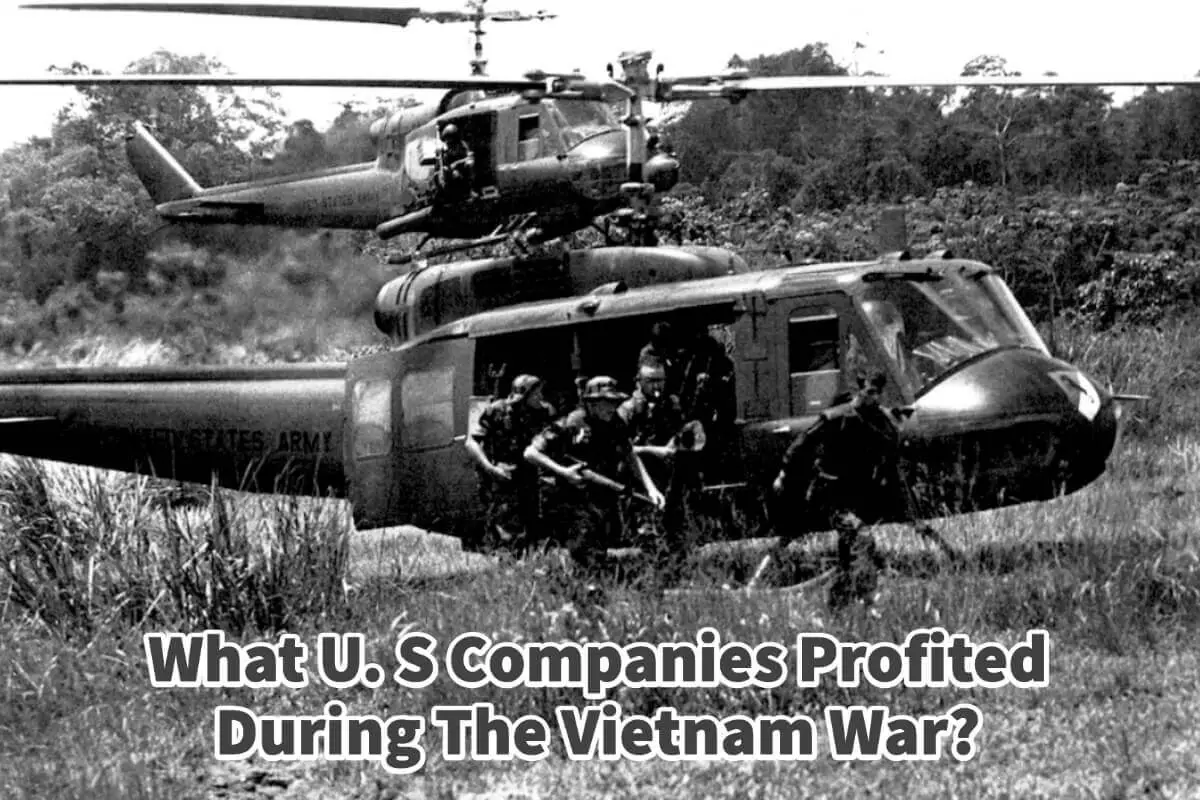One of the dirty U.S. secrets of the U.S. War with Vietnam is how many companies profited from the war. For many of these companies, the Vietnam War brought them out of absurdity as they earned billions with war profits.
During the Vietnam War, many U.S. companies profited from the Vietnam war. Some of these companies were heading toward bankruptcy, but their involvement in the Vietnam war helped make them profitable. For many others, they earned millions of dollars each year in profits off the war that helped ensure they continued to be successful or even thriving companies.
Table of Contents
- Top American Companies That Profited From The Vietnam War
- U.S. Companies And The Vietnam War
- Related Questions
Top American Companies That Profited From The Vietnam War
Below are some top U.S. companies that earned profits from the Vietnam War. The list is not complete, as there are too many to list. But all these companies were major suppliers for the Vietnam War effort.
Brown & Roots And Vietnam War Profits
Brown & Roots was a Texas-based defense contractor many see as one of the leading companies profiting during the Vietnam War. Brown & Roots, also known as Kellogg Brown & Root, was a Texas-based company known for giving U.S. President Lyndon Johnson a blank cheque when he ran for the U.S. Senate.
Because of President Johnson’s connection to Brown & Roots and how the war escalated under President Johnson, many believe that Pres. Johnson and Brown & Roots worked together on the war to ensure it continued and was profitable.
Brown & Roots was awarded massive engineering contracts throughout South Vietnam that included new ports, bases, and airports. The construction of this infrastructure was so massive that even today when you fly throughout South Vietnam, the airport landing strips, buildings, and other facilities are almost all American-built.
President Johnson was known to steer all contracts to Brown & Roots for all federal projects in South Vietnam, including airport ports, pipelines, and military bases. There are no public records of exactly how much Brown and Roots made off the Vietnam war, but many have estimated that Brown & Roots made billions off their defense contracts during the Vietnam war.
Bell Helicopter Supplies To The Vietnam War
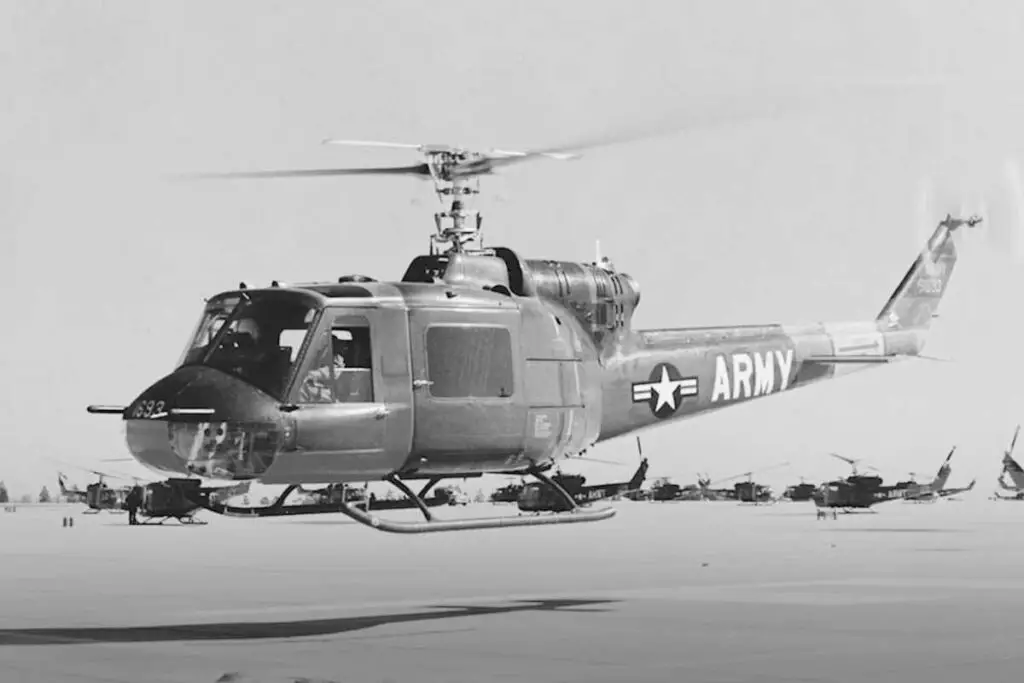
One of the Vietnam War symbols was the sound of the rotor blades of the Bell helicopter named Huey. Bell Helicopter made a lot of helicopters for Vietnam, but the Huey was one of the most famous as it was constantly on the nightly news.
Over 5,000 helicopters were operating in Vietnam during the war, but over 2,500 were lost due to enemy fire. For Bell Helicopter, this meant they were constantly replacing the helicopters that were lost during the war.
Besides the Huey, Bell Helicopter made many other helicopters for the Vietnam war effort. In economic terms, the United States military purchased thousands of helicopters, and Bell Helicopter constantly had business to fulfill these orders.
This would have translated to millions of dollars worth of helicopters sold to support the U.S. military during the Vietnam war.
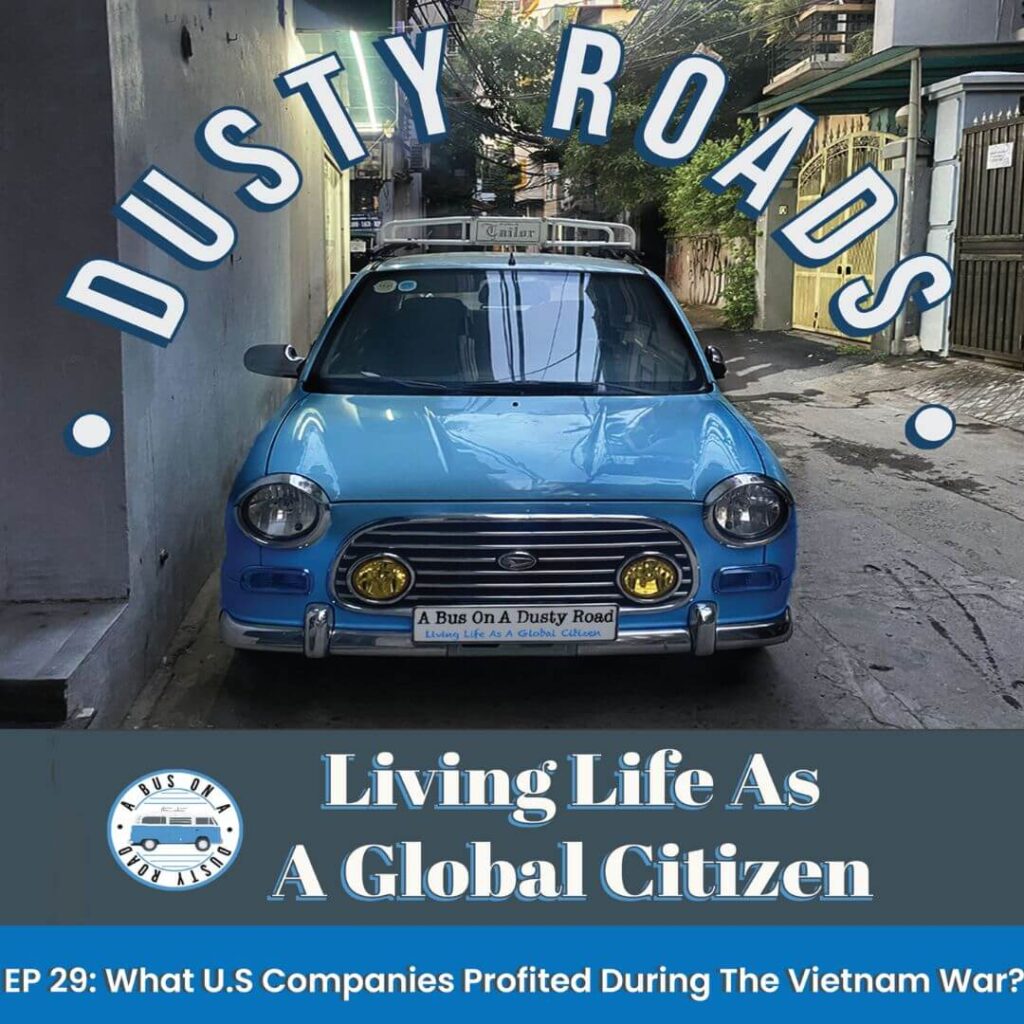
Listen To Our Podcast About What U.S. companies Profited During The Vietnam War? below or by clicking here.
Dow Chemical Produced Chemicals For Vietnam War
Dow Chemical was a small chemical company in Midland, Michigan, when the Vietnam War started. But soon, Dow Chemical became the U.S. military’s sole supplier of the dangerous chemical called “napalm,” also known as Napalm B.
Napalm was very simple to make, but it had horrific human consequences—Napalm was a kind of liquid fire that clung to human skin and melted off human flesh.
So horrific was this chemical that witnesses that saw the effects of Napalm spoke of eyelids burned that would not close and human flesh that looked like raw meat. But this did not stop Dow, which continued to produce Napalm for many years.
Dow also produced the famous Agent Orange for the Vietnam War. Agent Orange has been linked with high cancer rates among some Vietnamese Vets and congenital disabilities in Vietnam.
Dow Chemical profited from the Vietnam War; what was once a small chemical company in Michigan has become a household name and colossal corporation that is still profitable today. By 1974 Dow Chemical had become one of the largest chemical companies in the world – primarily due to their profits from the Vietnam war.
McDonnell Douglas Aircraft Company And Vietnam War Profits
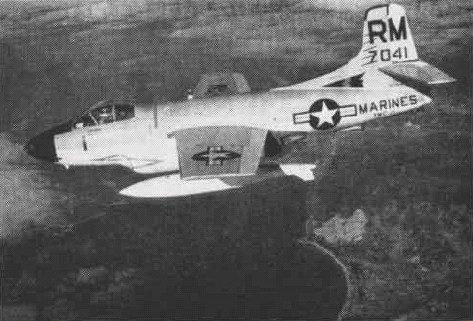
McDonnell Douglas Aircraft company supplied a lot of aircraft to Vietnam. In 1977 after the war had ended, they were one of the biggest financial winners of the Vietnam war era.
During the war, two struggling defense suppliers, one McDonnell and the other Douglas decided to merge and join their efforts; they formed one of the largest aircraft companies worldwide.
McDonnell Douglas joined to become a significant player in the Vietnam war, supplying planes for the U.S. military. Many planes were lost in the war due to enemy fire; McDonnell Douglas Aircraft had a constant business resupplying planes.
Once struggling or near bankruptcy, these two companies were again profitable, thanks primarily to the Vietnam War. The war helped them earn millions of dollars.
Lockheed Corp And Their Aircraft For Vietnam
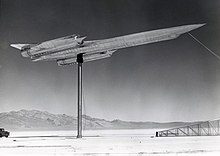
Like McDonnell Douglas, Lockheed Corp made aircraft for the Vietnam War era. One of their more famous planes was the A-12, which made its first flight in 1962.
Lockheed also designed reconnaissance airplanes from the A-12 to fly faster and higher than other planes and provide high-altitude photography.
Lockheed A-12 became a significant aircraft for the United States during the Vietnam war; it also helped ensure that Lockheed Corp made millions of dollars in profit.
Boeing Company And The Vietnam War Effort and Profits
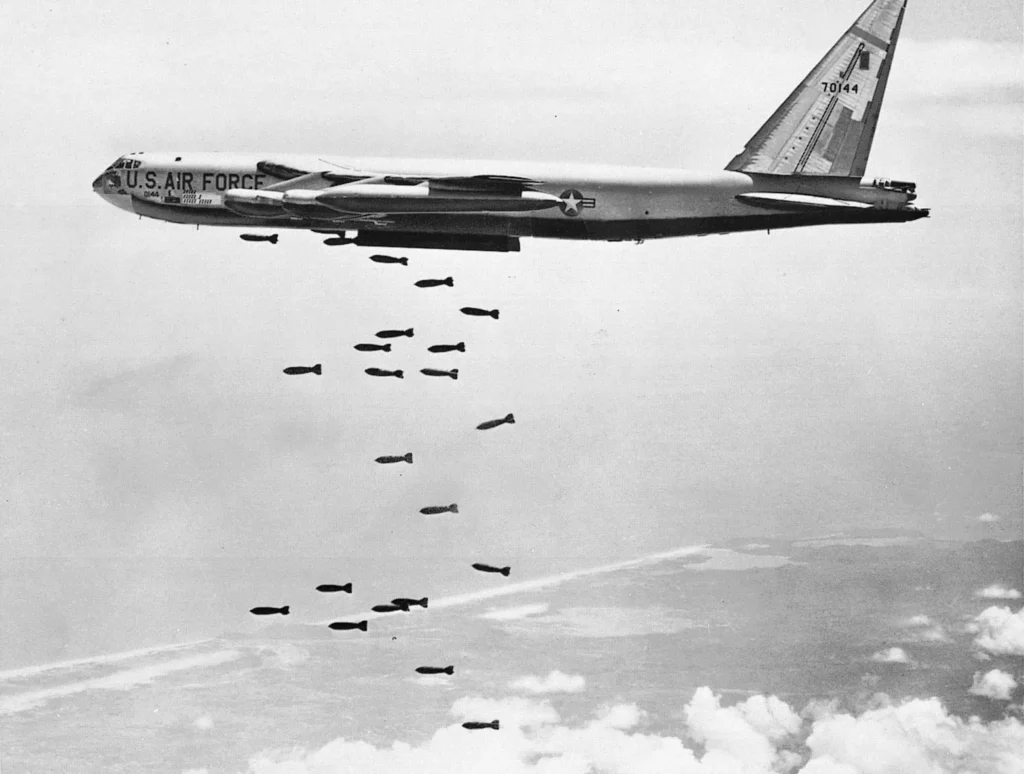
One of Boeing’s planes for the Vietnam war was the B-52 bomber. This long-range heavy bomber is famous for the constant bombing raids it delivered on North Vietnam.
So many bombs were dropped on North Vietnam that teams are still trying to clean up and clear up the massive number of bombs dropped on Vietnam. Between 1965 and 1975, the United States and its allies dropped over 7.5 million tons of bombs on Vietnam, Laos, and Cambodia.
Ton by ton or pound by pound, it was the most extensive aerial bombardment in human history—even more bombs than dropped during the entire World War II. The U.S. B-52 airplanes built by Boeing dropped many bombs on North Vietnam, Laos, and Cambodia.
Years ago, in a residential area of Hanoi, there was a small B-52 lake. In that small lake was the tail-end of a B-52 plane sticking up. Many B-52 planes were lost in Vietnam, and like the other companies, this translated into huge profits for Boeing Corp.
U.S. Companies And The Vietnam War
Many U.S. companies profited from the Vietnam war. These companies all had an economic reason to want to see the war continue/
Other well-known brands profiting during the Vietnam War include United Technologies, General Electric, and Rockwell International Corp. All these companies supplied products for the Vietnam war effort, ensuring they were profitable. Essentially they made millions of dollars in profit from American involvement in Vietnam.
I do not think any of these companies wanted to see so much loss of both American and Vietnamese life during the war. Still, they were happy to stand back and make the chemicals, weapons, and planes or build the infrastructure in Vietnam to get the infusion of cash into their companies.
The Vietnam war was so unpopular to the American public that many of these companies either dismissed their involvement in their company history or glossed over it as if they had no involvement in making money off the Vietnam war. Essentially they refuse to own up to the money they earned during off the Vietnam war.
Hundreds if not thousands of U.S.-based companies found themselves in a situation where they were earning millions of dollars off the death and destruction that was taking place in Vietnam during the war; for them, the war was profitable.
At A Bus On A Dusty Road, we talk about history, travel, life, sailing, and ex-pat living. We are all about “Living Life As A Global Citizen.” We explore social, cultural, and economic issues and travel.
We would love to have you be part of our community. Sign up for our newsletter to keep up-to-date by clicking here. If you have any questions, you can contact me, Anita, by clicking here.
Listen to our Podcast called Dusty Roads. You can find it on all major podcast platforms. Try out to listen to one of our podcasts by clicking here.
Subscribe to our A Bus On A Dusty Road YouTube Channel filled with great videos and information.
Related Questions
What Happened To The Hmong After The Vietnam War?
When the Vietnam War ended, the Hmong in Laos was in a terrible position; the Hmong fighters were enemies of the present Laotian government and considered “persona non gratis.” Some were forced into labor camps or kicked out of their home and lands. The Hmong eventually made their way to the Laotian – Thai border to try to get into the United States via Thailand.
By clicking here, you can discover What Happened To The Hmong After The Vietnam War?
Could America Have Won The Vietnam War?
America could not have won the Vietnam war as it never won the hearts and minds of the Vietnamese people. The Americans even had difficulty controlling the Vietnamese people in Southern Vietnam, as many were disillusioned with the Southern Vietnamese government. Ho Chi Minh, the leader of North Vietnam, fully understood that another foreign power would not control the Vietnamese heart and soul.
By clicking here, you can discover Could America Have Won The Vietnam War?
What Was The Main Reason For US Involvement In Vietnam?
The main reason for the involvement of the United States in the Vietnam War was the belief in the Domino theory; the Domino theory was a principle used to describe the effects on the world if Vietnam fell to communism. The belief was that if Vietnam became communist, the rest of Asia, New Zealand, and Australia would eventually become communist. At the time, American leaders felt they were fighting for the survival of democracy throughout the world.
By clicking here, you can learn more by reading What Was The Main Reason For U.S. Involvement In Vietnam?

